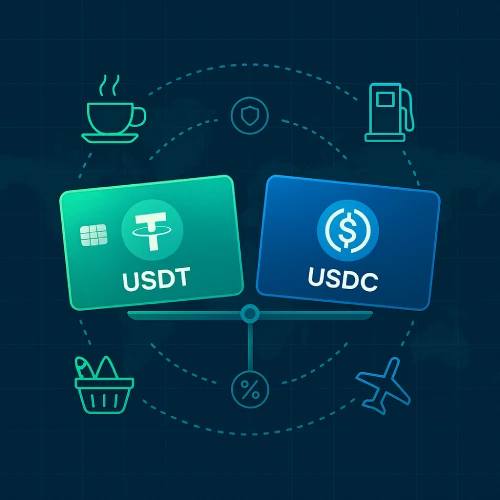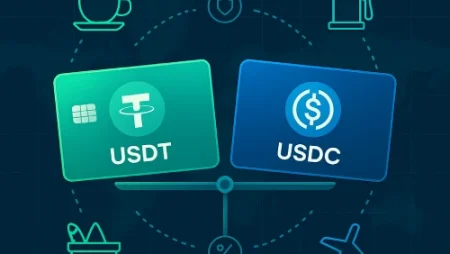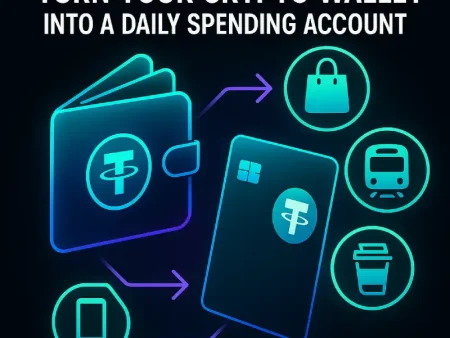

USDT vs USDC — Which Is Better for Daily Spending?
When it comes to stablecoins, USDT (Tether) and USDC (USD Coin) are the most popular choices. But if you’re planning to use crypto for daily spending with a crypto debit card, which one is actually better?
Let’s break it down by comparing the two side by side — fees, stability, network availability, and real-world usability.
💵 What Are USDT and USDC?
USDT (Tether): Launched in 2014, USDT is the most traded stablecoin in the world. It’s issued by Tether Limited and available on multiple blockchains like TRC20, ERC20, and BEP20.
USDC (USD Coin): Introduced by Circle in partnership with Coinbase, USDC is known for transparency and is widely used in the U.S. financial system. It’s also available on many blockchains, including Ethereum, Solana, and Polygon.
Both coins are pegged 1:1 to the US dollar and aim to provide a stable store of value in the crypto world.
⚖️ Key Comparison for Daily Spending
Adoption
USDT: Widely accepted, especially in Asia and emerging markets
USDC: Strong presence in the U.S. and DeFi
Blockchain Support
USDT: TRC20, ERC20, BEP20, Solana, and more
USDC: Ethereum, Solana, Arbitrum, Base
Network Fees
USDT: Very low (TRC20)
USDC: Higher on Ethereum, lower on L2s
Stability & Audits
USDT: Some past concerns over reserves
USDC: Regular audits and full transparency
Crypto Cards Support
USDT: Supported by most crypto cards
USDC: Supported, but fewer options with TRC20
Conversion Speed
USDT: Fast, especially on TRC20
USDC: Slower on ERC20, faster on L2s
Regulatory Trust
USDT: Moderate
USDC: High (preferred by U.S. institutions)
🛒 Which Is Better for Everyday Use?
USDT is better for:
Low-fee spending (TRC20)
International users (Asia, LATAM, Africa)
Crypto cards that support instant stablecoin payments
USDC is better for:
U.S.-based users
Those prioritizing regulation and transparency
DeFi and Layer-2 Ethereum networks
🏁 Final Verdict: Pick Based on Your Lifestyle
If your priority is speed and low fees, especially for daily transactions through crypto debit cards, USDT (TRC20) is currently more practical.
If you value audits, compliance, and institutional trust, and you’re in the U.S. or using DeFi protocols, USDC may be your better choice.



